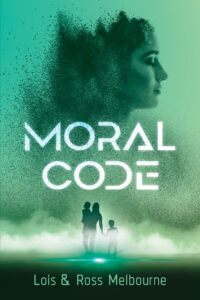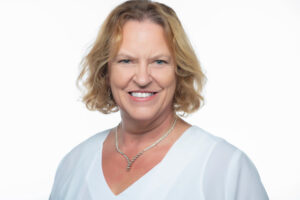Ethical behavior is proven to be highly influenced by environmental factors. On this fact alone, we can see that the inclusion of women and other diverse participants are needed in STEM fields. Diverse voices elevate decision-making discussions.
The more exposure to society’s expectations of ethical choices in all of STEM, pushes all worker’s obligation to raise the bar. Communicating external concerns in the context of practical problem-solving is critical to exposing risky choices. Women are more likely to stimulate the necessary conversations.
As women, we are uniquely trained to challenge the status quo. It’s required of us, just to break into STEM fields. This skill set positions us well to challenge the ethical issues in our industry’s systems. It’s our responsibility to raise our voice demanding fairness and equity are considered in product designs and systems development.
Car crashes historically injured women far more than men, despite passing crash tests. It took decades before the industry spent money on female-sized crash test dummies. More female engineers everywhere in the process would have sped the progress.
At the heart of the science fiction genre is the ability to shine the light on society’s issues, strengths and weaknesses. Sci-fi gives us the opportunity to explore the impact of the good and ugly choices made by scientists, engineers, doctors and their teams. When writing Moral Code and exploring the boundaries needed for ethical artificial intelligence, I knew a female protagonist would approach the issues very differently than a male character.
I’m not saying women are more ethical than men. A man, my husband, thought of the kernel premise to Moral Code. If you could create a purely ethical AI you could train it to protect kids. He is definitely a protector. Our diverse perspectives led to the features and functions of the tech utilized in the plot. They also led to more complex issues and resolutions in the storytelling.
Our voices in the lab, design studio, or development discussions bring different viewpoints to the processes. We expend considerable mental energy around personal safety. Our perspectives are unique.
It’s not a surprise that one of the most prolific female patent holders, Vanessa Ogle, took her knowledge of hotel in-room technology to also create systems for hotel staff and then teachers to provide smart panic button systems. Her engineering knowledge merged with her respect for women’s needs to protect their dignity and lives.
If you’ve never been afraid for your safety, how likely are you to think about the personal safety needs in a hotel space?
If you’ve never experienced discrimination during your job hunt, how likely are you going to think about the application tracking system having inherent discriminatory issues?
If your face is always recognized during your facial recognition app’s testing, how are you going to realize the system doesn’t see the contours of dark skinned faces, as discovered by MIT’s Joy Buolamwini?
In the world of artificial intelligence, the demands for female voices, intellect and active participation are increasing. AIs are not just the realm of computers and mathematics. Female engagement is critical as deployment of AIs expand to assist in the development or assessments in every industry.
Sadly, while women are increasing in numbers through most STEM degree programs, they’re still grossly underrepresented in computer sciences. This is where enormous ripple effects will impact all other fields. STEM education must expand to include many more ethical definitions and full career programs. We can’t rely on politics to shape our ethical society experience. We need to make sure we are doing that work ourselves.
This is not easy stuff. In Moral Code, the AI is built upon a moral operating system created by globally crowd-sourcing the definitions of ethical decision-making. We’re not anywhere near that, yet. But the negotiation and collaboration skills, such an effort will take, are more skills embraced and refined by women throughout their career advancement and survival.
Increasing the numbers of women in STEM is important for the equality of the individual woman. It’s even more important for society. Gender, race, religion and culturally diverse voices could be the difference between our technical advances creating our dystopia or something closer to resembling a utopia future.
 Moral Code is not the first collaboration for Lois and Ross Melbourne. Side-by-side, they grew their software business to a global award-winning organization, as CEO and Chief Technology Officer, respectively. Now Lois’ storytelling brings to life Ross’ deep understanding of the possibilities within artificial intelligence and robotics. Parenting and marriage have been the easy part of this equation. Lois is now writing books, having published two children’s books about exploring careers. Moral Code is her first but not her last novel. You can learn more about Lois at www.loismelbourne.com.
Moral Code is not the first collaboration for Lois and Ross Melbourne. Side-by-side, they grew their software business to a global award-winning organization, as CEO and Chief Technology Officer, respectively. Now Lois’ storytelling brings to life Ross’ deep understanding of the possibilities within artificial intelligence and robotics. Parenting and marriage have been the easy part of this equation. Lois is now writing books, having published two children’s books about exploring careers. Moral Code is her first but not her last novel. You can learn more about Lois at www.loismelbourne.com.



Itís nearly impossible to find experienced people on this subject, but you sound like you know what youíre talking about! Thanks